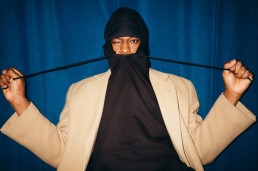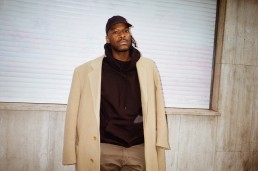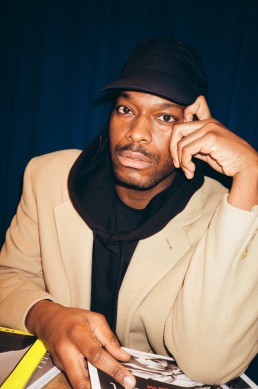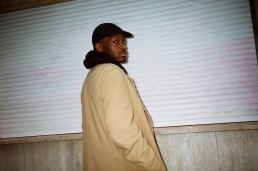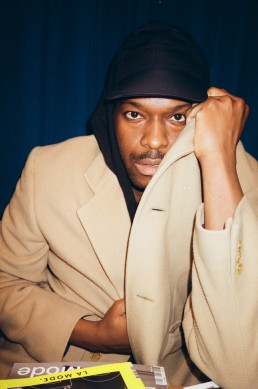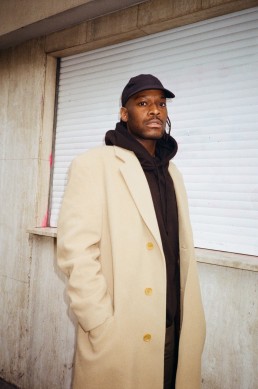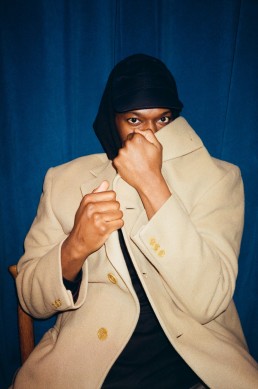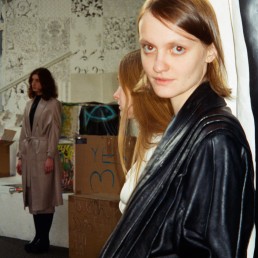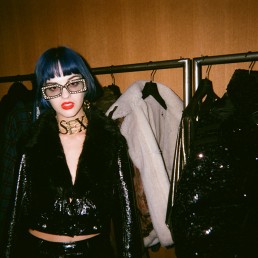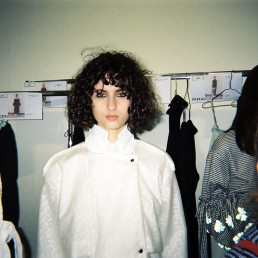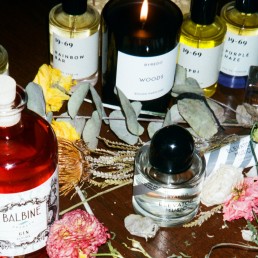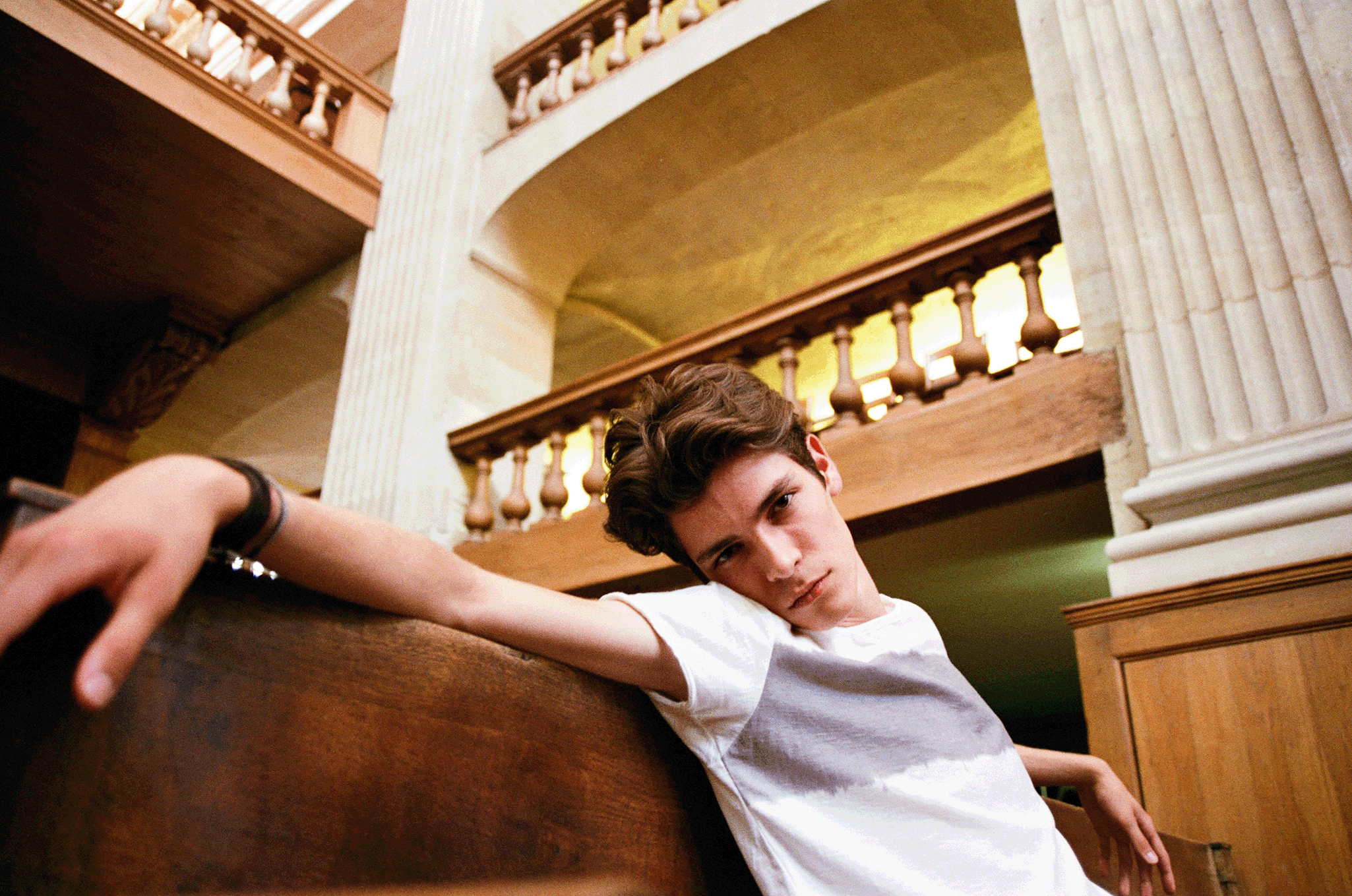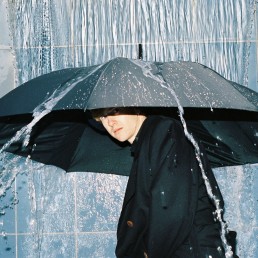Rick Owens and Michele Lamy were the first fans of Ojay Morgan better known by his stage name Zebra Katz. In 2012 when his sassy track “Ima ready” was the soundtrack of Rick’s runway show, the fashion world was discovering an avant-garde queer black artist who was among the first ones with Mykki Blanco and Cakes da Killa to explore their queerness openly in this music industry. It took more than 8 years for Zebra to release his highly anticipated first record “Less is moor”. A full body of work which contains mainly all his previous life experiences and how all his past projects impacted his art now. After working with Gorillaz on their record “Humanz”, Zebra did not choose this exposure to get a label to run a normal career, he decided to create his imprint and took his time to create an undefinable sound. Don’t put him in a box, he’s not here to become your queer icon, he just wants to express how a black man can cope in this industry by himself. We met him in Paris some weeks before “Less is moor” release for a conversation and spoiler: go get his fucking record as soon as you can.
Hello Ojay, your first record is getting out in March and I feel since I discovered you in 2012, so many things happened. How do you feel about this release?
I feel that it was time for me to put out a consistent full body of work for people to know a little bit more about Zebra Katz. I’ve done many singles and EPs but I wanted something that people can discover me differently since my debut in 2012. Working with Gorillaz and watching new artists like Kilo Kish and Vince Staple putting their projects out with their team was interesting to see how their team was guiding them. But I wanted to control this release by myself, I did not have this pressure putting out an album just to put something out.
So, it was not an issue?
Releasing an album was never an issue for me. Many people were like « Oh you should have this and this so you can go on tour » or « media will more understand your music » but no, I just want it to be a natural process from the “Champagne” mixtape to my “Bad Bitch” EP. I was touring consistently for the last 8 years so yeah it’s time to put out this album.
I was always travelling and never been in the same place in a month. I need to isolate myself to stay focus. Many things happened in my life these past few years, I moved to Berlin where I did not even know the language and did not have a lot of friends, so I was able to isolate myself. It took me so much time and if you told me in 2012 to release this, I would be like « But, what are you talking about? » And mainly, I wanted to achieve this by myself and finding the perfect creative direction. People were like « You need to find a label » but I want to make it on my own. Under my imprint. Even when I was with Mad Decent, I was still doing my things.
The idea of being a sign to a label is for you to be put in a box?
Not me, but my creativity yes.
Do you think major labels are essentially here to make money on these queer artist making « rap » music?
Look at all what they are doing with all these queer rap artists… There is one thing to be visible but taking black people and promoting “queer rap » is a way too easy to categorize us. There’s a lot of brown queer artists making all their career properly or selling their tickets, they don’t need any white people in this business to bring them into the spotlight. Now, this is happening, brown people can express their queerness easily. So that’s fine!
Do you think being queer became a normal trend in this industry?
We’ll never be in a normal environment if we continue to categorize queer artists. Many record labels are trying to control queer culture. Promoting my music was hard and long as I wanted my creativity to grow up and it’s important to experiment this. This industry compartmentalizes black people and their art as when you are black you need to stay in your box, making rap music, but we can do all kind of music, even fucking country music. We formed part of the pop culture even when it was not hype. Now, the industry used the queerness of some artists to be more political.
How did you build your new album LESS IS MOOR?
It was an organic process. There’s no guarantee when you make an album that people will listen to it, so I wanted to have the control of my art and having the people I want on it like Shygirl. No big deal, I need to love what I’m doing and I need to feel the energy I’m putting into it and I want people to feel it too. No matter how big you are, if we need to collaborate, it needs to make sense. I have my label and it was very fun to chill with all these collaborators! I wanted something free and organic. This was the energy when I build this “Less is more”.
When making this album, you did not get a lack of creativity and confidence since the year you decided to work on it and now?
It’s very challenging…There were moments in my career which were exhausting, being relevant is exhausting, being an artist is exhausting but I wanted this. I can’t complain when things are happening to me. I like to focus on other things..I’m independent so I’m attached to focus on things I’m building. With this album, I was like « I need to finish it, even if I took 7 years to make it! » My homework is done, now people need to deal with it!
Having your record label helps you to explore more easily your visuals and interest with fashion I guess?
I don’t reduce my work to my sexuality. Making music can open so many connections. Look at Theophilus London and Virgil Abloh for example. A runaway during a show can’t happen without music and for me, Rick Owens introduced me to that audience. I did not have a way in before he gave me this exposure playing my song during his show. Rick and Michele supported me so much. It was through a Dazed campaign, they discovered me like this and later I was in Paris with them. I dedicate this record for Rick Owens and Michele Lamy. They are my godparents, always welcoming me in their home. They give me this lovely support I did not get from this industry. I did not ask for much but I’m still open to working with other big brands!
I met many people in Paris telling me they love Kiddy Smile but they don’t know his music, you are not afraid of this?
I love Kiddy! It’s people who choose to see Kiddy only to be an openly queer black guy defending his culture. He can be everywhere, he can DJ set in some cool fashion after-parties as well for a political even. He is enough intelligent to used these platforms to be more visible. And his visibility is the most beautiful thing that can happen in France for queer people.
Any guilty pleasures?
Yes, TV reality show and marijuana…
